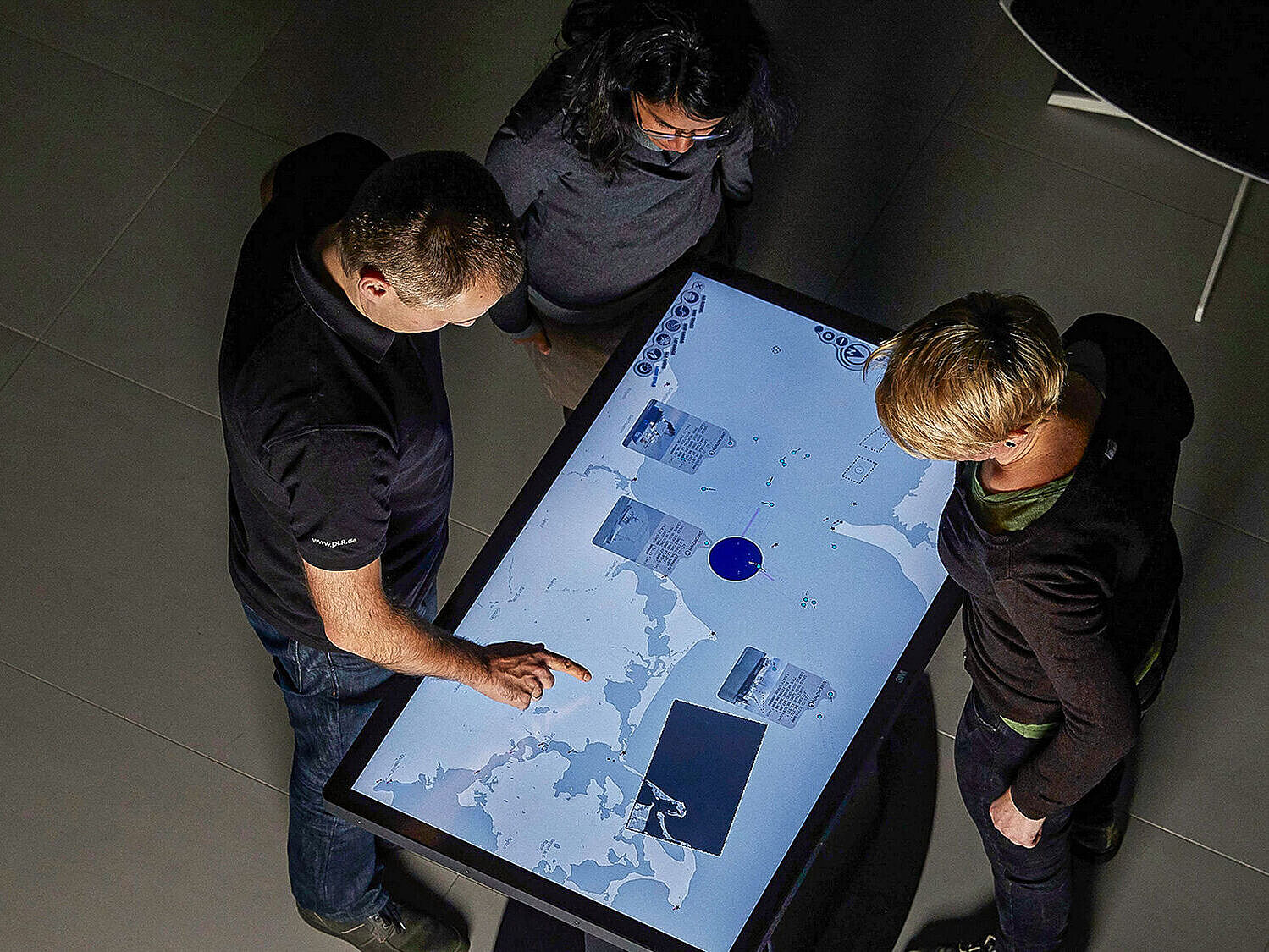‘We are investigating how the variability in the middle atmosphere affects the spread of radio waves and aim to significantly improve the accuracy of a backup system for satellite-based positioning (e.g. GPS),’ says Prof. Dr. Christian von Savigny, Spokesperson for the AIR-MoPSy Initiative.
Significant relevance of backup system due to artificial disturbances in the Baltic Sea region
The project is highly relevant in the current geo-political situation - even more so in the Baltic Sea region. This is because satellite-based navigation systems (GNSS, Global Navigation Satellite System) provide essential services for determining positions and synchronising times. They offer a wide range of possible applications, but also create dependencies. Natural or man-made interference with GNSS signals can lead to disasters in air or maritime traffic. ‘In the Baltic Sea region, the current political situation is causing repeated artificial interference to GNSS signals,’ says Professor Dr. Christian von Savigny. ‘Therefore, a backup system that provides sufficiently accurate position and time data in the event of signal interference is particularly important.’
In addition to the University of Greifswald, the DLR Institute for Solar-Terrestrial Physics and the DLR Institute of Communications & Navigation (both in Neustrelitz) are involved in the AIR-MoPSy project, as well as the Leibniz Institute of Atmospheric Physics (Kühlungsborn), and the Leibniz Institute for Baltic Sea Research Warnemünde.
‘It is a great success that funding has been granted for five collaborative projects that involve the university,’ states Pro-Rector for Research, Prof. Dr. Ralf Schneider. ‘The projects deal with leading-edge topics that are highly relevant for society in Mecklenburg-Vorpommern and beyond.’
Science Minister Martin says: ‘With this new research funding programme, we are strengthening applied research in the state. After all, the universities and their innovations are the driving force behind the competitiveness of Mecklenburg-Vorpommern as an industrial location.’
About the State Excellence Competition
The competition Application-Oriented Research Excellence in Mecklenburg-Vorpommern [de] supports research excellence projects at the state's universities and non-university research institutions. Five collaborative research projects submitted successful proposals. They will be funded for four years. Ten further individual projects were selected by the Ministry for a twelve-month term. By means of knowledge and technology transfer, the research results are to be developed further for social and economic use.
The successful collaborative projects at a glance:
- KI-TIERWOHL, smart technologies for analysing and ensuring animal welfare in research and agriculture, coordinating institution: University Medicine Rostock
- AutoPasture, digital applications for autonomous herd and pasture management of cattle, coordinating institution: University of Applied Sciences Stralsund
- Alg4Nut, algae in ruminant feeding: microbiological and functional basics, prebiotic effects and feasibility of algae cultivation in Mecklenburg-Vorpommern, coordinating institution: University of Rostock
- Target-H, innovative therapies, smart diagnostics and predictive oxidative signalling patterns based on the example of skin cancer, coordinating institution: University Medicine Rostock
- AIR-MoPSy, Atmospheric Impact on the R-Mode Positioning System, coordinating institution: University of Greifswald
Contact at the University of Greifswald
Prof. Dr. Christian von Savigny
Institute of Physics
Felix-Hausdorff-Str. 6, 17489 Greifswald
Tel.: +49 3834 420 4720
csavignyphysik.uni-greifswaldde

